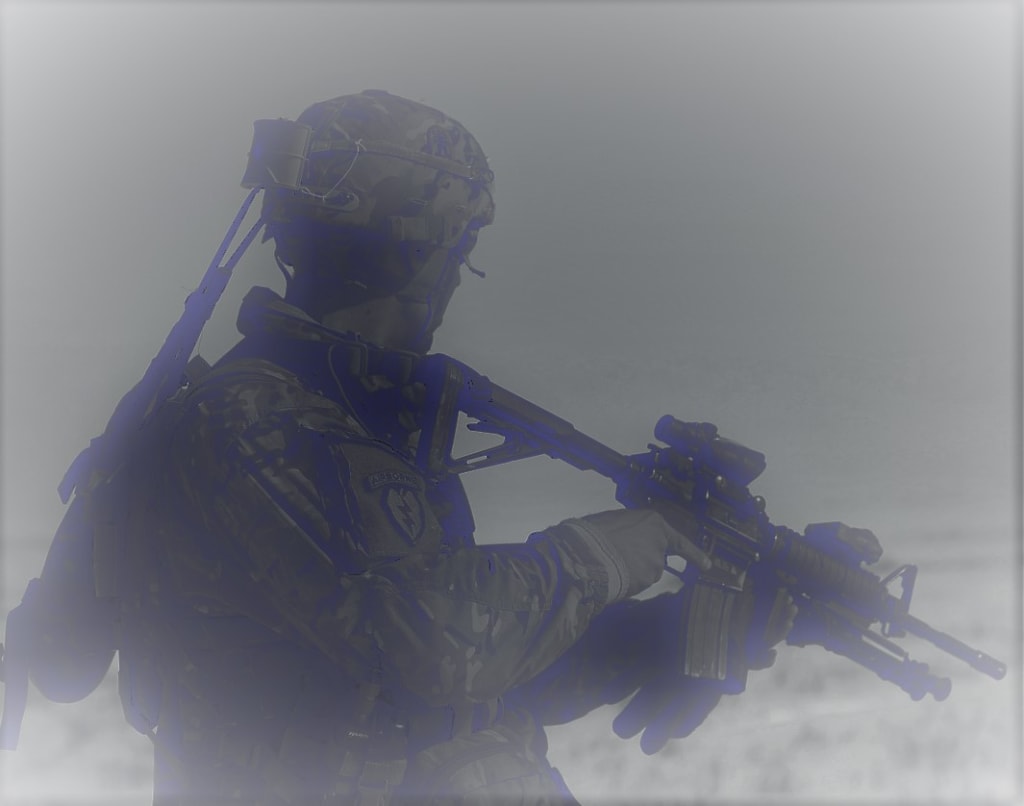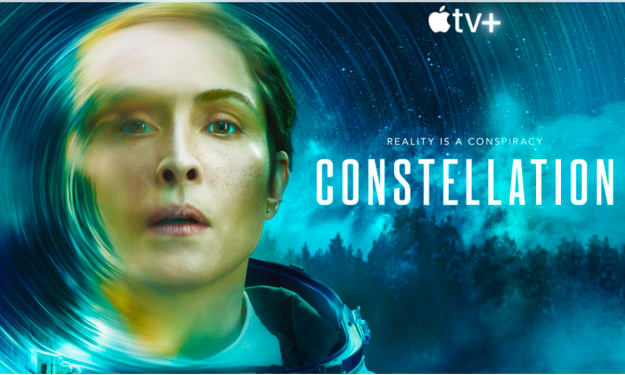Military in Science Fiction
Revisit the Posleen Wars.

Military in Science Fiction
Wrong uniform, wrong rank, wrong weapons, wrong movements, wrong wrong wrong. Common thoughts while reading or watching most fictional stories with military involved and specifically Science Fiction. Most modern western military (remember I said most) don’t use fully automatic assault rifles as a main weapon, it wastes too many rounds too quickly. Nobody refers to special operations units or missions as “Spec Ops”, nobody. And can you please stop making all military personnel two dimensional war fiends.
Okay, now that’s out the way. I’ve read my fair share of science fiction and a good deal of military science fiction. During my first deployment to Baghdad in 2003, a friend and fellow Soldier gave me a the book A Hymn Before Battle by John Ringo. Alien hordes, humans rising to the defend our planet, and new fantastical technologies. What’s not to like? It must have taken me only a few days to finish A Hymn Before Battle and I desperately needed the other two that were available at the time.
The series is called the Legacy of the Aldenata or the Posleen Wars. The Aldenata are an ancient species of aliens that disappeared from the galactic scene but left their advanced weapons and technology to a species of centaur crocodile creatures called the Posleen. They follow a path of war and don’t have much in the capacity for deviation of thought from the path or an inquisitive nature. They wage war using large numbers, advanced weapons, and generally eat their conquests.
Earth lies in their path of destruction. Luckily for us the other various species of aliens come to us to help and be helped. These advanced societies have long forgone conflict and so the Galactics use their advanced technology and human tactical know-how to create weapons that will be a match for the billions and billions of carnivorous Posleen. The science behind the technical advancements, new energies, and galactic society seems to be pretty well researched but is not the remarkable part of the overall series.
The part of the story I think puts it above most other science fiction and even some classic military science fiction is the way the military, its culture, its leadership, and our policies are depicted. Too often military service members are depicted as two-dimensional and more like non-player characters in a video game. Dumb, ruthless, single minded on killing or completing a mission, and any other cliche.
In the series the military personnel and the events around them are pretty genuine. The Special Operations troops are very well written. Throughout the series the US Army Special Forces Soldiers are used to train local US citizens to defend their homes for the upcoming war. Typically Special Forces or Green Berets, not to be confused with the broader term of Special Operations (which include the Green Berets, SEALs, CCTs, Delta, etc.), are seen doing one of their primary mission, teaching. Preparing an indigenous community for defense and insurgency one of the founding missions of the Green Berets tracing its predecessors to the Office of Strategic Services and other guerrilla styled groups from World War II.
From tankers, combat engineers, fighter pilots, and most other jobs you can think of are represented in this series. From the rise of support units to engage in close combat to the desertion and crimes of retreating combat units, many tales are told. Even the exploits of local militias and civilian refugees are given treatment. The victims of war and conflicts are often overlooked by the heroism of the fighters, but this series tackles what War means for civilians. Which is important because most Americans never consider these realities as the last War fought on US soil (in any real terms) was the Civil War.
Another unique facet of the Posleen Wars is that the leadership from the president all the way down to a fire team leader can be heroic, competent, foolish, intelligent, and pathetic. The decisions to be made are ones that if considered honestly would make everyone short of a psychopath question their humanity. Cowards are often revealed when they truly realize they may die and heroes will often arise when they know they will die. Mistakes are made by the egos of career peacetime officers, leaders that have never been in combat or served at all.
Consider this for a moment when we think about the roles Presidents, Secretaries of Defense, Senate Armed Committee members play in the maintaining and deployment of our armed forces. Some do well and others do poorly. How does a person balance the value of foreign people, US service members’ lives, the will of the constituents, and greater humanity? These are the types of dilemmas good science fiction invokes. Dilemmas that can stir our emotions and with cynicism put aside, we can examine our own morals.
The years this series began was before the events of 11 September 2001. The US hadn’t been in a substantial conflict since the Vietnam War. In the books the high command’s foresight of this serves as the driving cause for all former military personnel to be recalled and given rejuvenation treatment turning old World War II to Vietnam veterans into younger versions of themselves. There is no better training for combat than combat itself. This plays a very interesting drama in one of the spin-off books Watch on the Rhine. The rejuvenation of German World War II veterans to include members of the SS makes for an interesting dilemma when the fate of humanity is in the balance.
Non-commissioned officers (NCOs) in the US military are often overlooked as the sources of great leadership and heroics in many military science fiction, other fictions, and media in general. NCOs are typically the most experienced war-fighters. For many that don’t understand the concept of enlisted and officer corps here is a little example. A Platoon Sergeant in a typical infantry unit will have anywhere from 10 to 15 or more years of being an infantry Soldier. A platoon sergeant’s commissioned officer counterpart is typically a First Lieutenant with less than three years of experience. The Lieutenant commands the platoon and more than likely has no combat experience before doing so, unless they were prior enlisted or in other rare cases. The point to understand here is that in the Posleen Wars, NCOs are given a realistic treatment on how they affect missions and lead troops.
I decided to read about the author of the main series to find out if my deductions were correct, and they were. The creator of the series and author of most of the stories is John Ringo. A veteran of the 82nd Airborne Division and part of the expeditionary force into Grenada. This is interesting to me because the characterizations of the troops, the tactics, and nuances of the leaders are largely from the advantage of an enlisted Soldier. Couple that experience with Mr. Ringo’s studies in Marine Biology and IT, and you get a good researcher applying science and some theoretical physics theories to modern war fighting methods.
Many other depictions of military in science fiction or fiction, do an unremarkable job of humanizing service members. The fact that our military and civil servants by in large are just like anyone else, seems to be lost on writers or conspiracy theorists that easily paint them as the evil empire.
Another important facet about the Posleen War series that I find most interesting is how humanity and the governments of the Earth deal with this invasion of aliens. It's as complicated as our cultures are. Some do well, and some do bad. Luck of the landings are either defensible or disastrous. The worst and best of humanity is touched upon and though it can be argued that the success of US forces is American centric writing, I would say, think objectively and check your facts. We can debate all day about the US Armed Forces abilities over every other country’s in the world, but that’s for another article and some other website.
John Ringo did a fantastic job depicting the realities of the military for better and worst. The series Legacy of the Aldenata is a great read and to me stands a head above the many other military science fiction I’ve been able to read. Of course I haven’t read them all and I’m always open to suggestions. What Ringo gets right is what every modern writer that uses military in their stories should be getting right, accuracy.
Watching most science fiction is even harder. The way Mal, Jayne, and Zoe clear a room and move to contact, no wonder the Browncoats lost. And don’t get me started on the poor Clone and Stormtroopers. Point is, writers, directors, producers! You have thousands of combat vets available that learned from real life experiences. Use them, they would love to help you out.
Finally be sure to consider the human factor of service members when developing your stories. Yes you will easily find the douche-bag that refers to him or herself as a “door kicker”. But look a bit harder and you will find the scholar, humanitarian, and guardian. Those are the ones that experienced combat and actually learned something about themselves and humanity from it. Also, don’t over use PTSD as a trope to create drama, it’s lazy. Many of us with PTSD can function just fine and it's as played out as the mad scientist. We are as real as the next person and are typically missing from many stories and are not cliches.
About the Creator
Nickolas Rudolph
Speculative Fiction and Commentary. Family, learning, investigating, music, and edgeworks are his passions.






Comments
There are no comments for this story
Be the first to respond and start the conversation.